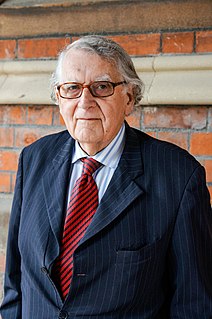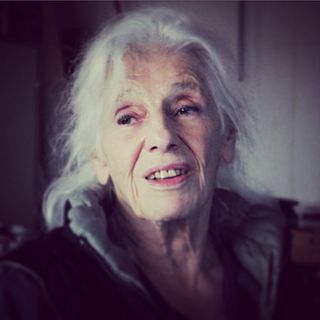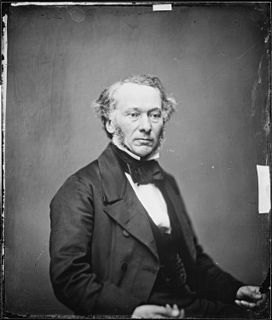A Quote by Maurice Hayes
The Rising was mainly a piece of streat theatre designed by poets for dramatic effect. For better or worse, it became part of the founding myth which states need - but which they should move on from after a time. Major John MacBride, in a cameo performance in which he left Jacobs Mill, as he had entered it, immaculately dressed down to the white spats, told his colleagues Next time lads, don't shut yourself up behind four walls. It was good advice.
Quote Topics
Advice
After
Became
Behind
Better
Cameo
Colleagues
Designed
Down
Dramatic
Dressed
Effect
Entered
Founding
Four
Four Walls
Good
Good Advice
Had
His
John
Lads
Left
Mainly
Major
Mill
Move
Move On
Myth
Need
Next
Next Time
Part
Performance
Piece
Poets
Rising
Should
Shut
Spats
States
Theatre
Time
Up
Walls
Which
White
Worse
Yourself
Related Quotes
A painting is an object which has an emphatic frontal surface. On such a surface, I paint a black band which does not recede, a color band which does not obtrude, a white square or rectangle which does not move back or forth, to or fro, or up or down; there is also a painted white exterior frame band which is edged round the edge to the black. Every part is painted and contiguous to its neighbor; no part is above or below any other part. There is no hierarchy. There is no ambiguity. There is no illusion. There is no space or interval (time).
One of the surest tests of the superiority or inferiority of a poet is the way in which a poet borrows. Immature poets imitate mature poets steal bad poets deface what they take and good poets make it into something better or at least something different. The good poet welds his theft into a whole of feeling which is unique utterly different than that from which it is torn the bad poet throws it into something which has no cohesion. A good poet will usually borrow from authors remote in time or alien in language or diverse in interest.
Too many poets write poems which are only difficult on the surface, difficult because the dramatic situation is easily misunderstood. It's not difficult to write poems that are misunderstood. A drunk, a three-year-old-they are easily misunderstood. What is difficult is being clear and mysterious at the same time. The dramatic situation needs to be as clear in a poem as it is in a piece of good journalism. The why is part of the mystery, but the who, what, where, and when should all be understood.
When Christ was about to leave the world, He made His will. His soul He committed to His father; His body He bequeathed to Joseph to be decently interred; His clothes fell to the soldiers; His mother He left to the care of John; but what should He leave to His poor disciples that had left all for Him? Silver and gold He had none; but He left them that which was infinitely better, His peace.
Pantaenus was one of these and is said to have gone to India. It is reported that among persons there who knew of Christ, he found the Gospel according to Matthew, which had anticipated his own arrival. For Bartholomew, one of the apostles, had preached to them, and left with them the writing of Matthew in the Hebrew language, which they had preserved till that time. After many good deeds, Pantaenus finally became the head of the school at Alexandria, and expounded the treasures of divine doctrine both orally and in writing.
This rose became a bandanna, which became a house, which became infused with all passion, which became a hideaway, which became yes I would like to have dinner, which became hands, which became lands, shores, beaches, natives on the stones, staring and wild beasts in the trees, chasing the hats of lost hunters, and all this deserves a tone.
He[Napoleon] had destroyed only one thing: the Jacobin Revolution, the dream of equality, liberty and fraternity, and of the people rising in its majesty to shake off oppression. It was a more powerful myth than his, for after his fall it was this, and not his memory, which inspired the revolutions of the nineteenth century, even in his own country.
I had relatives in New York City who I stayed with. And in those days, the area from Union Square down Fourth Avenue had small bookstores, many of which were run by Spanish immigrants who'd fled after [Francisco] Franco's victory. I spent time in them, and also in the offices of Freie Arbeiter Stimme (Free Worker's Voice) with anarchists. I picked up a lot of material and talked to people, and it became a major influence.
When the Taliban captured Kabul in 1996 after a searing, four-year civil war, they immediately instituted laws which fit their utopic vision of the time of Islam's founding more than 1,300 years earlier. Afghan women's lives offered the most visible sign of the imagined past to which Afghanistan's present was to be returned.

































